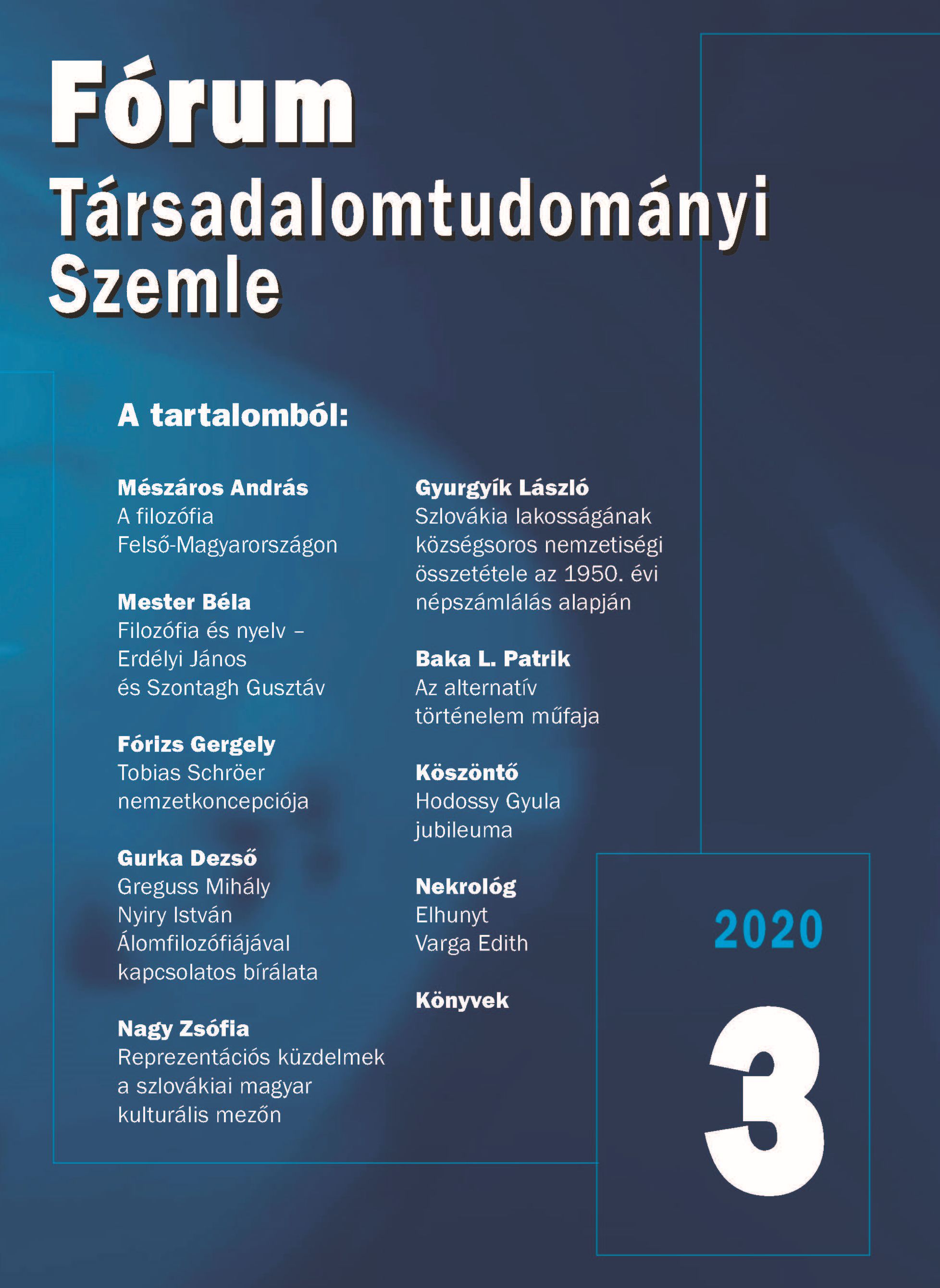Filozófia és nyelv – a filozófia nyelve
Philosophy and Language – the Language of Philosophy
The Language Ideologies of Two Reform-era Hungarian Philosophers (János Erdélyi and Gusztáv Szontagh)
Author(s): Béla MesterSubject(s): 19th Century Philosophy, Philosophy of Language
Published by: Fórum Kisebbségkutató Intézet
Keywords: common sense tradition;János Erdélyi;Hegelianism;Hungarian philosophy;Slovak language;special terminology;Gusztáv Szontagh
Summary/Abstract: The study examines the question of how personal linguistic experiences influenced the language perception of 19th century Hungarian philosophers, their ideas about the nature and limits of linguistic cognition. The issue is exemplified by the language ideologies of two reform-era Hungarian philosophers from the north-eastern counties of Hungary, Gömör and Ung, János Erdélyi and Gusztáv Szontagh. The first part of the study presents the structural change of the European philosophical public that makes people of the time sensitive to the phenomena of language use, then the next part compares the statements of the two philosophers on Hungarian philosophical terminology, presenting their underlying conflicting philosophical presuppositions. Finally, the author compares their reflections on the Slovak language, which is equally well spoken by the two Hungarian philosophers, looking for an answer to the question of how the opposite philosophical position and the resulting different approach to languages can lead to an almost identical perception of the Slovak language by both authors.
Journal: Fórum Társadalomtudományi Szemle
- Issue Year: XXII/2020
- Issue No: 3
- Page Range: 35-54
- Page Count: 20
- Language: Hungarian

